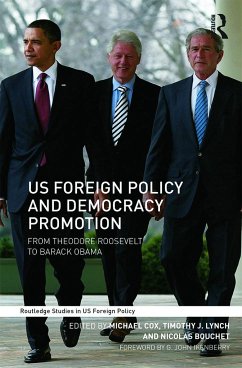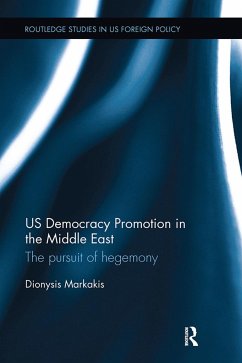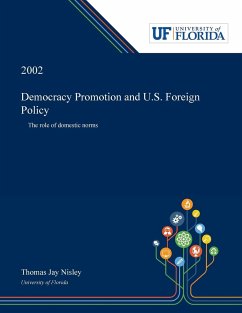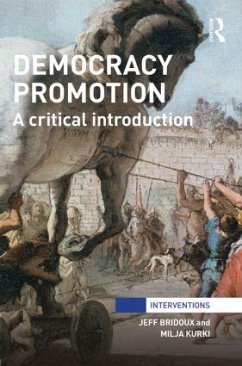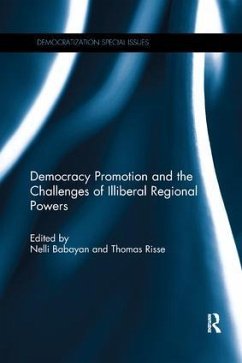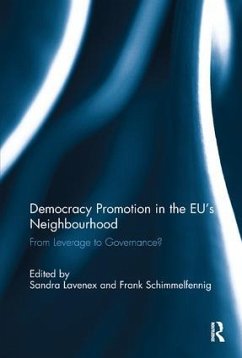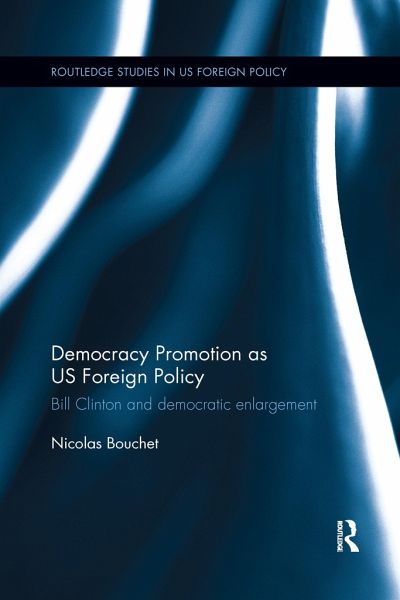
Democracy Promotion as US Foreign Policy
Bill Clinton and Democratic Enlargement
Versandkostenfrei!
Versandfertig in 1-2 Wochen
55,99 €
inkl. MwSt.
Weitere Ausgaben:

PAYBACK Punkte
28 °P sammeln!
The role of democracy promotion in US foreign policy has increased considerably in the last three decades, booming especially in the immediate years after the end of the Cold War. Under Bill Clinton, there was an explicit attempt to do so by reframing American strategy in terms of 'democratic enlargement' and this book will assess the stra





